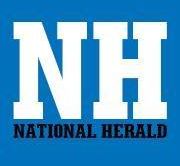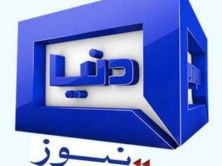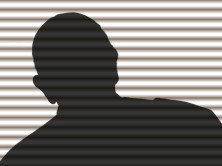The Conseil de déontologie journalistique is responding to the Belgium Royal Palace's questions regarding the book Royal Questions.
The Belgium Royal Palace has complained to the Journalistic Deontology Council about the book Royal Questions, the Associated Press and Agence France Presse reported. The book included “alleged dalliances and private family information about leading members of Belgium’s monarchy,” and was written by RTBF journalist Frederic Deborsu.
RTBF (Radio Television Belge Francophone), which is a “public broadcaster,” reportedly “barred” Deborsu “from appearing on the TV channel for at least a month but refused to call that a penalty.” The AFP added that RTBF “appeared to distance itself from the writer, saying the book was written while he was on leave.”
iMediaEthics wrote to RTBF asking for more information about Deborsu’s being “barred” from on-air appearances and if the station had any involvement with the book. RTBF’s Bruno Deblander confirmed in an email to iMediaEthics that Deborsu had asked for unpaid leave to write the book and said that RTBF is not “responsible for activities during this period” but that it doesn’t “suspend the rules and obligations established by the contract signed by the staff member with RTBF.” (Deblander’s comments to iMediaEthics are translated from French.)
Deblander said that Deborsu is currently off-camera because of the “controversy” and has been “assigned to the department Information and Documentation Writing” because of “Article 11 of the internal rules of RTBF.” The re-assignment was “approved by Mr. Deborsu.”
Deblander told iMediaEthics by email that RTBF had “no involvement in the book nor in its publishing.” He added that currently RTBF is looking into whether Deborsu used the broadcaster’s “equipment and data” and if “any collateral damage could affect his credit.” Deblander noted that “a study is underway to further clarify the rights and duties of people who take unpaid leave to write books” and that the broadcaster is “sympathetic” to staff who need “extra support” for their work.
According to the AFP, Royal Questions is “mainly based on anonymous sources” and was published in October. Prince Philippe responded to the book’s claims, according to the AP, saying “The day that Mathilde said ‘Yes’ to my proposal was the happiest day of my life.” And, the Belgium palace said the book includes “many totally erroneous and slanderous details.”
The Donald W. Reynolds Journalism Institute notes that the Raad voor de Journalistiek (RvdJ) is Belgium’s “independent body for self-regulation.” RvdJ’s “Code of Journalistic Principles” supports press freedom but dictates that “confidential information shall not be disclosed without the express authorization,” according to a Google Translate.
iMediaEthics asked the press council, Raad voor de Journalistiek, if it is the body to which the Royal Palace complained. The group’s ombudsman, Flip Voets, explained to iMediaEthics that Belgium has “two press councils” — “one for the Flemish (Dutch speaking) media, of which I am the secretary and ombudsman, and another for the French speaking media, the Conseil de déontologie journalistique.” According to Voets’ email to iMediaEthics:
“The Royal Palace has not introduced a formal complaint, but has sent a series of questions about the book Royal Questions to the Conseil de déontologie journalistique, since the author of the book, although it has been published in both national languages, is a French speaking journalist. The questions are about possible infringements of the journalistic ethics in the book.
“The Conseil de déontologie journalistique will discuss the letter from the Royal Palace during its next meeting.”
That group’s secretary general, André Linard, told iMediaEthics that the group is “an operational body…organized by a juridicial body, the AADJ,” which has 37 news outlets as members.
Linard described the group as a “self-regulating institution: a kind of ‘internal parliament’ for media and journalists.”
According to Linard, the group took up the Palace’s concerns Nov. 14 and will treat the “call for information” as a “complaint.” As such, the council will “examine the content of the book, invite the Palace and the journalist to a discussion if it seems necessary and take a final decision, upholding or not the complaint.”
Linard noted that the Council can’t “take any juridicial or material sanction” but does have a “moral authority” and can “sanction” outlets.
“Our aim is not to punish for the past but to clarify the ethics for everybody and to prevent other breaks in the future,” Linard said to iMediaEthics by email, noting that decisions are posted on the council’s website.






